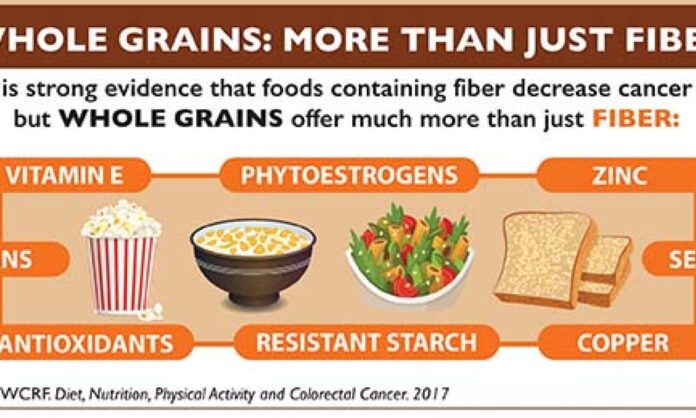
Colon cancer is one of the deadliest forms of cancer worldwide, accounting for millions of deaths annually. While the exact causes of colon cancer are not yet fully understood, several risk factors have been identified, including age, family history, and lifestyle choices. In recent years, research has found a significant link between dietary fiber intake and a reduced risk of colon cancer. In this article, we will explore the connection between dietary fiber and colon cancer, as well as answer some frequently asked questions.
Understanding Colon Cancer:
Before delving into the relationship between dietary fiber and colon cancer, it’s important to have a basic understanding of what colon cancer is. Colon cancer, also known as colorectal cancer, refers to the development of malignant tumors in the colon or rectum. The colon is a vital part of the digestive system, responsible for absorbing water and electrolytes, as well as processing waste before excretion.
Dietary Fiber and its Role:
Dietary fiber, often found in fruits, vegetables, whole grains, and legumes, is the indigestible portion of plant-based foods. It is composed of different types of carbohydrates, such as cellulose, hemicellulose, and pectin. Unlike other nutrients, dietary fiber is not broken down by the body’s digestive enzymes. Instead, it passes relatively intact through the digestive system, promoting bowel movements and adding bulk to stool.
The Link between Dietary Fiber and Colon Cancer:
Numerous studies have shown a strong correlation between higher dietary fiber intake and a reduced risk of developing colon cancer. The mechanism behind this relationship lies in the role of fiber in promoting regular bowel movements and maintaining a healthy gut environment. Adequate fiber intake helps to prevent constipation and supports the removal of toxins and potential carcinogens from the colon, reducing exposure time to harmful substances.
Furthermore, dietary fiber acts as a prebiotic, nourishing the beneficial bacteria in our gut. These bacteria ferment fiber and produce short-chain fatty acids, such as butyrate, acetate, and propionate. These fatty acids have been found to have anti-inflammatory and anti-carcinogenic properties, helping to maintain a healthy colon environment and potentially preventing the development of cancer cells.
Recommended Daily Fiber Intake:
To reap the benefits of dietary fiber in reducing colon cancer risk, it is essential to consume an adequate amount of fiber daily. The American Heart Association recommends a daily intake of 25 grams for women and 38 grams for men. However, it is important to note that individual needs may vary based on age, sex, and overall health. It is advisable to consult with a healthcare professional or a registered dietitian for personalized recommendations.
Frequently Asked Questions (FAQs):
Q: Can fiber intake alone prevent colon cancer?
A: While fiber intake has been found to reduce the risk of colon cancer, it is important to maintain an overall healthy lifestyle. Regular exercise, limited alcohol consumption, and a balanced diet rich in fruits, vegetables, and whole grains are also crucial in reducing the risk of colon cancer.
Q: Is there a specific type of fiber that is more effective in preventing colon cancer?
A: Different types of dietary fiber can offer various health benefits. However, research has not identified one specific type of fiber as more effective in preventing colon cancer. Consuming a variety of high-fiber foods is the best approach to ensure a balanced intake of various fiber types.
Q: Can supplements replace dietary fiber?
A: It is always advisable to obtain nutrients from whole foods rather than relying solely on supplements. Whole foods provide a wide range of additional beneficial compounds beyond just fiber. However, if it is challenging to meet daily fiber requirements through diet alone, supplementing with fiber may be considered, but consultation with a healthcare professional is recommended.
Q: Can high-fiber foods cause discomfort?
A: While high-fiber foods can cause temporary discomfort such as bloating or gas, these symptoms generally subside as the body adjusts. To minimize discomfort, it is recommended to gradually increase fiber intake and ensure adequate water consumption.
In conclusion, a significant link has been established between dietary fiber intake and a reduced risk of colon cancer. Adequate fiber intake promotes regular bowel movements, removes toxins, supports a healthy gut environment, and provides nourishment for beneficial gut bacteria. Additionally, maintaining a healthy lifestyle and overall balanced diet is essential in reducing the risk of colon cancer. If you have specific concerns or questions, it is recommended to consult with a healthcare professional or registered dietitian to tailor your dietary choices to your individual needs.

















